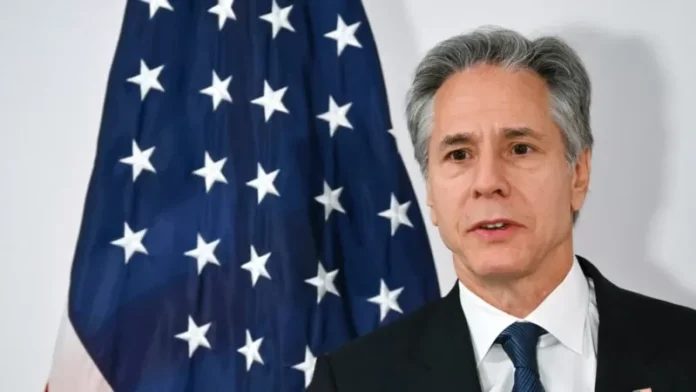Washington D.C. – U.S. Secretary of State Antony Blinken is on a mission to rally regional support for a new vision for Syria’s future. With the ousting of longtime authoritarian leader Bashar al-Assad, the United States sees an opportunity for a brighter and more stable future for the war-torn nation.
Blinken is set to travel to Jordan and Turkey on Wednesday to meet with key leaders and discuss the latest developments in Syria, as well as issues in Israel, Gaza, Lebanon, and across the region. The goal of his trip is to secure consensus among regional leaders on key principles for Syria’s post-Assad transition.
These principles include the full respect for minority rights, the facilitation of humanitarian aid, the prevention of Syria becoming a haven for terrorism or a threat to its neighbors, and the securing and safe destruction of chemical or biological weapons stockpiles. Blinken has made it clear that the United States will only recognize a Syrian government that upholds these principles.
During his visit to Aqaba, Blinken will meet with senior Jordanian officials to discuss bilateral issues and reaffirm the strong strategic partnership between the two nations. In Ankara, he will engage with senior Turkish officials to strengthen cooperation on shared priorities, including counterterrorism and regional stability.
Prior to his trip, Blinken held talks with counterparts from Jordan, the United Arab Emirates, Qatar, and Egypt, where he stressed the importance of a Syrian-led transition. This sentiment was echoed by the Organization for the Prohibition of Chemical Weapons (OPCW), who will hold an emergency session on Thursday to address the situation in Syria. The OPCW, the implementing body for the 1997 Chemical Weapons Convention, has reminded Syria of its duty to declare and destroy all banned weapons and is closely monitoring the situation.
The U.S. State Department has stated that it will await the outcome of the session before determining the next steps. Meanwhile, U.S. President Joe Biden is set to join leaders of the Group of Seven leading industrial nations in a virtual summit on Friday to discuss Syria and other pressing issues in the Middle East.
The recent swift offensive by Syrian rebel groups that led to the ousting of Assad has been met with mixed reactions. While many Syrians are celebrating the end of his decades-long reign of brutal oppression, uncertainty looms over the nation’s future.
The dominant faction among opposition forces, the Islamist group Hayat Tahrir al-Sham, is rapidly consolidating power. At the same time, foreign actors are competing for influence with the nascent government or seeking to limit its potential as a security threat.
Syria’s nearly 14-year civil war has claimed the lives of 500,000 people and displaced half of its prewar population of 23 million. Millions of Syrians have fled to neighboring countries such as Jordan, Turkey, Iraq, and Lebanon, with many continuing their journey to Europe in search of safety.
As the United States works to rally regional support for a new vision for Syria’s future, the ultimate goal remains a peaceful and prosperous nation for its people. With the support of key regional leaders, the hopes for a brighter future for Syria are within reach.

